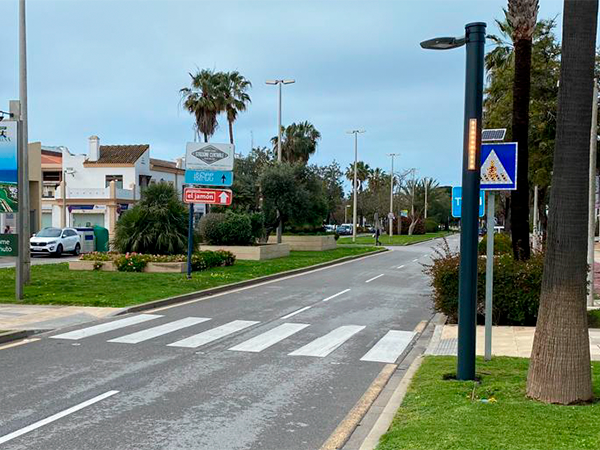Vodafone smart road safety in Rota, Spain
- June 28, 2023
- William Payne

Vodafone is developing two smart city digitisation projects in Rota, a city in the Spanish province of Cadiz in the south of the country. The two projects aim to promote sustainable and intelligent urban mobility in partnership with the City Council.
One project will improve road safety for pedestrians and road users. The second will provide public transport users with improved and more accurate information on buses and other public transport options within the city.
The solutions will be completed with the deployment of sensors, both fixed and mobile (on city buses), which will make it possible to have a map of environmental and noise pollution in real time.
Vodafone Spain is working with both the City Council and with the municipal company Modus to implement the programme.
Rota joins other cities such as Santiago de Compostela or Plasencia, in which the operator has already implemented digital connectivity, sustainability or mobility solutions to promote smart cities
The ‘Smart Crosswalks’ solution aims to improve road safety for passers-by and vehicles by implementing a video analytics system with LED signage in different locations in Rota. The second project is ‘The Dynamic Information at Bus Stops’, which incorporate intelligent monitors in stations and bus stops to improve quality of information for users of public transport.
Smart Crosswalks combines LED technology with Intelligent Video Analytics in integrated cameras. These scan the environment, analyse the captured information and convert it into LED light signals.
The solution is designed to provide a safe and energy-efficient response, detecting people and up to 16 different types of data depending on the type of analytics configured in the cameras themselves: people counting at pedestrian crossings and routes, accounting for light or heavy vehicles, direction and speed of passage of vehicles or identification of inadequate parking, among others.
The smart cameras can detect when a pedestrian is about to cross a zebra crossing and send light signals to the vertical LED warning signs. Passive horizontal signalling becomes active vertical signalling and road safety is significantly improved, given the greater visibility of the illuminated panels compared to reflective paint.
The ‘Dynamic Information System at Bus Stops’ is made up of intelligent monitors in stations and bus stops, which provide travellers with higher quality information about the service and increase control over the service by offering better control of frequencies or incidents that may arise. In addition, each bus has a dynamic information system installed that provides additional information, promoting the digital adaptation of users when choosing their travel model.
Vodafone, in a joint venture with Bosonit, has been chosen as the winner of this project within the framework of the call for the aid programme for municipalities for the implementation of low emission zones and the sustainable and digital transformation of transport. Both solutions will be completed with the deployment of sensors, both fixed and mobile (on city buses), which will provide a map of environmental and noise pollution in real time. All the data generated will enrich the horizontal platform of the city and will allow a more efficient management of public resources.
Vodafone has already implemented sustainable mobility initiatives in Spain, such as the connected and autonomous vehicle project for last-mile logistics in Santiago de Compostela (SMARTiAGO), the project of sensorisation of the regulated parking area in Las Palmas de Gran Canaria, and the system of control and location of car parks and optimisation of bus services developed within the framework of the “Smart Destination Plasencia” project.




